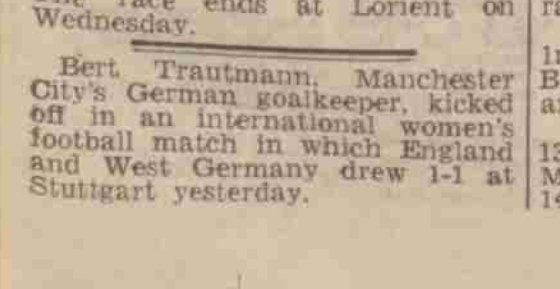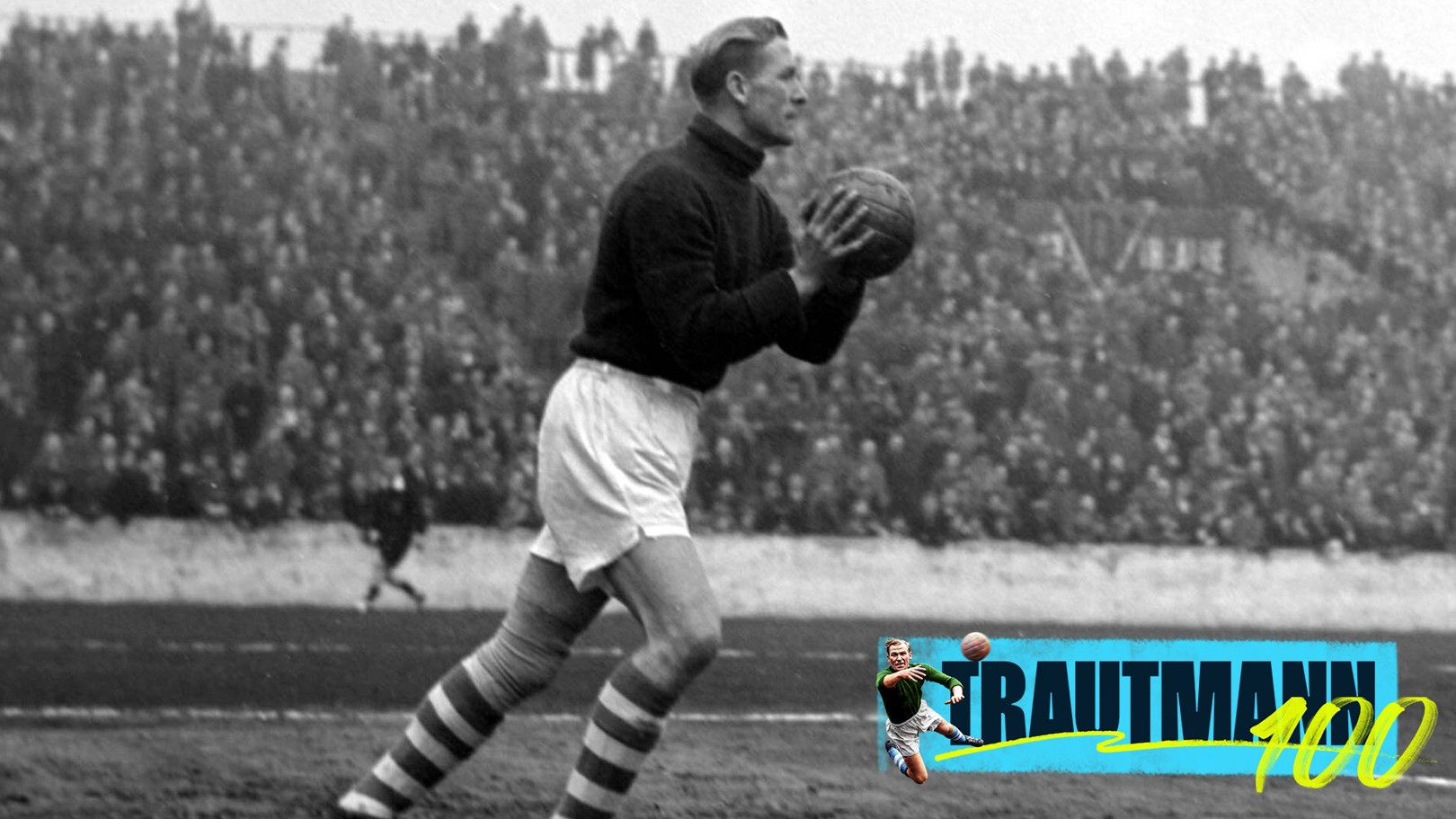In Manchester he began to understand what it was like to live in a free society and this helped shape the rest of his life.
A few years back I was staying in his birth city Bremen for a few days and decided I’d like to see where he lived and also go to his first football club – where he played as a midfielder and not a goalkeeper.
Bremen, like Manchester, was an industrial city and a hardworking one during his early life. Trautmann lived in a typical working class district.
I travelled by tram from the centre of Bremen to the district Bert had lived in and, after a short walk, I found his old house.

A few streets away was his old football club Tura Bremen. There is a small square named after him there: Bert Trautmann Platz. Note the square uses the English version of his name, not Bernhard or Bernd. For me that was significant as it was in Manchester that his fame came, not in Bremen.
Not too long after visiting his house I received a call asking me if I would be a consultant on the film that was to be made of his life. ‘The Keeper’, as it was called in England (it was called ‘Trautmann’ in Germany), told his story via the final days of World War Two; his period in a prisoner of war camp and then his time as City’s goalkeeper and the immediate aftermath of the 1956 FA Cup final.
Like all dramatisations this is not always factually accurate but it does give anyone viewing it a taste of what life was like for the goalkeeper. Big Blue John Henshaw played Trautmann’s father in law in the film.

In the year or so that followed the release of the film I spoke at various premieres, film festivals and so on, including one in Switzerland. It was great to help explain the significance of Trautmann to an overseas audience.
Trautmann is rightly acclaimed as a truly brilliant goalkeeper but there are other aspects to his life that don’t always get the praise but may surprise people.
One of these concerns his promotion of women’s football. Back in the 1950s, after his exploits at Wembley, he became involved with the staging of a European competition for women’s teams which was to be staged in Germany. He contacted a former Bolton Wanderers scout, Percy Ashley, who had established the Manchester Corinthians women’s team in 1949 and asked him if he could get a team together to represent England in this European Cup, as it was dubbed.
The Corinthians, playing as England, actually won the competition with Trautmann travelling with them and acting as their ambassador and translator. These were the days when the FA banned women’s teams from playing on FA affiliated grounds and also sanctioned those involved with FA affiliated clubs if they became involved with women’s clubs. By taking a team to Germany Trautmann risked being banned from football himself. Somehow he managed to avoid being sanctioned, but this demonstrates that while a City player Trautmann was quite happy to push boundaries if he felt it would help others.

Over the years I met Trautmann a few times but my favourite moment was not a meeting but a phone call. Back in 2002 I was researching for my book ‘Farewell To Maine Road’ and I wrote to Bert to arrange an interview with him. Early one Sunday morning my home phone started to ring and my youngest daughter, who was 5 at the time, ran to answer it. She then shouted: ‘Daddy, there’s a funny man asking for you.’
I took the phone off her and said ‘hello?’ The strong German accent on the other end said: ‘Tell that child, the “funny man” is Bert Trautmann!’
In the years that have followed my youngest has dined out on the fact she once spoke with the legendary City ‘keeper.
Gary James is currently researching the history of the Manchester Corinthians women’s team. If you played for them or have a family member who did then please contact him via Gary@GJFootballArchive.com and check out his website www.GJFootballArchive.com.






